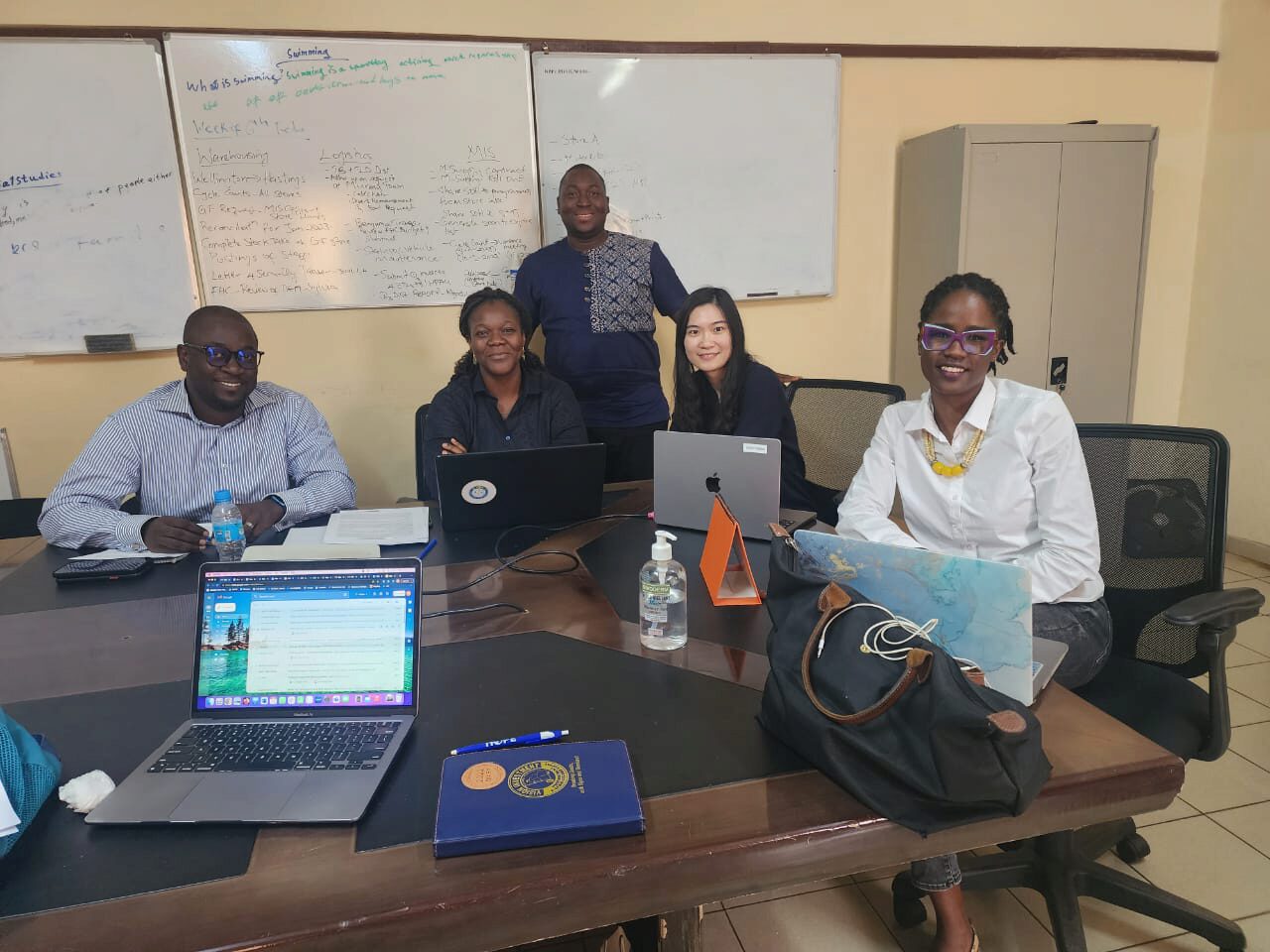Wharton Healthcare Analytics Lab
Tackling healthcare’s most pressing challenges on a global scale
Growing data availability and advances in machine learning offer a transformative opportunity to deliver effective, dynamic, and customized healthcare. The Wharton Healthcare Analytics Lab (WHAL) develops the pioneering algorithmic tools that organizations and governments need to leverage these opportunities to improve healthcare for all.
Resource Allocation
Equitably allocating health resources in highly constrained environments in collaboration with government agencies
Workforce Wellbeing
Reducing burnout and promoting positive cultures across the healthcare workforce via analytics-driven insights and interventions
Innovative Trials
Developing adaptive and personalized clinical trial designs to improve patient health behaviors in partnership with Penn CHIBE
Treatment and Care
Identifying promising treatment strategies from large-scale health systems data
Health Equity
Ensuring equitable outcomes through algorithmic debiasing and improved human-AI collaboration
Our cutting edge analytics have already touched tens of millions of lives, thanks to a playbook that focuses on:
Harnessing the Power of Partnership
We are always looking for new partners who share our interest in leveraging analytics to improve healthcare practice and delivery. If you are interested in working with us, please contact us at jamiepow@wharton.upenn.edu.
Previous Partners





Join our mailing list to hear about the Lab’s new research, cases, and events.
Resource Allocation
Catching COVID at the Greek border
Hamsa Bastani and a team of researchers worked with the Greek government to optimally allocate limited COVID testing among tens of millions of international travelers, doubling the number of infections caught.
Reducing unmet demand in Sierra Leone
Wharton OID PhD candidate Angel Chung is working closely with the Sierra Leone government to use machine learning and optimization for essential medicine distribution across thousands of health facilities in the country. Preliminary results suggest a reduction of ~30% patient unmet demand. Read Angel’s Research Spotlight here.

Workforce Wellbeing
Research that informs practice is at the heart of what we do. Check out these articles to learn more about how we can help protect and advance the well-being of our healthcare workers.

- Work team identification associated with less stress and burnout among front-line emergency department staff amid the COVID-19 pandemic
- Burnout at Work Isn’t Just About Exhaustion. It’s Also About Loneliness
- Leadership communication, stress, and burnout among frontline emergency department staff amid the COVID-19 pandemic: A mixed methods approach
- How to Avoid Burnout for Shift Workers
- The Hidden Status Battles That Can Roil the Office
Innovative Trials
Our research plays a critical role in the development and use of responsible and powerful algorithms to drive innovations in medical practice by improving trial design. Through this process, we leverage high-dimensional patient data to better personalize decisions while ensuring patient safety. We further speed up trials by minimizing experimentation, leveraging multiple patient outcomes, and learning across different patient populations. We are partnering closely with the Penn Center for Health Economics and Behavioral Economics to leverage these tools in their pilot studies to improve actual patient health behaviors.
Recent Publications
- Online Decision Making with High-Dimensional Covariates
- Mostly Exploration-Free Algorithms for Contextual Bandits
- Adaptive Clinical Trial Designs with Surrogates: When Should We Bother?
- Predicting with Proxies: Transfer Learning in High Dimension
- Uniformly Conservative Exploration in Reinforcement Learning

Treatment and Care
Big data and the use of new algorithmic methods have an enormous potential to inform everything from treating patients with substance use disorders and the construction of social interventions for sex trafficking victims, to establishing best practices for human decision-making in medical settings. Take a look at some of our recent work in this area:
- Data-driven initiatives on substance use disorder treatment, medication high-risk opioid prescribing
- Trends in Buprenorphine Treatment in the United States, 2009-2018
- Buprenorphine Treatment By Primary Care Providers, Psychiatrists, Addiction Specialists, And Others
- A Quiet Drug Problem Among the Elderly
- America has a pain problem. How can we find relief?
- Population-Based Opioid Prescribing and Overdose Deaths in the USA: an Observational Study
- Where Is All the Deviance? Liminal Prescribing and the Social Networks Underlying the Prescription Drug Crisis
- Using big data to inform social interventions for sex trafficking victims
- New methods to algorithmically identify best practices from trace data on human decision-making
Health Equity
As algorithms and AI become increasingly prevalent in the design and administration of medical care, it is imperative that we continually advance our ability to debias those systems and ensure their accuracy. The articles below are just a small example of how our research is working to advance these goals. We incorporate these ideas to advance health equity in our deployed algorithms and interventions.
Our Leadership

Hamsa Bastani
Hamsa Bastani is an Associate Professor of Operations, Information and Decisions as well as Statistics and Data Science at the Wharton School of the University of Pennsylvania. Her research primarily focuses on developing novel machine learning algorithms for dynamic learning and optimization in healthcare. Specifically, she has designed methods for sequential decision-making (bandits, reinforcement learning, active learning) and leveraging auxiliary data sources (transfer learning, meta-learning). She has worked closely with national governments, including Greece and Sierra Leone, to deploy algorithms at the country-scale to improve public health outcomes.
Her work has received several recognitions, including the Wagner Prize for Excellence in Practice, the Pierskalla Award for the best paper in healthcare, and the Behavioral OM Best Paper Award. Her research has been published in leading outlets including Nature, Management Science, and Operations Research. Prior to Wharton, Hamsa completed her PhD at Stanford University and graduated summa cum laude from Harvard College.
Associate Professor of Operations, Information and Decisions
Faculty Co-Lead, Wharton Healthcare Analytics Lab

Marissa King
Marissa King is the Alice Y. Hung President’s Distinguished Professor at the Wharton School of the University of Pennsylvania. Professor King’s research has significantly contributed to our understanding of a wide range of pressing health care issues ranging from the opioid epidemic to clinician burnout. Her current work focuses on increasing access to high quality behavioral health care and improving the well-being of the health care workforce.
As a passionate teacher and speaker, she is committed to translating her academic expertise into practice. She is the author of the book, Social Chemistry: Decoding the Elements of Human Connection. Her research, writing, and book have been featured in The New York Times, The Wall Street Journal, The Atlantic, Harvard Business Review, and National Public Radio, among other outlets.
King’s award-winning research has been published in academic outlets including, JAMA, Health Affairs, BMJ, as well as leading management journals. She has been the Principal Investigator on multiple projects funded by the National Institutes of Health. Prior to joining the faculty at Wharton, she was a professor at the Yale School of Management. She received her PhD from Columbia University.
Alice Y. Hung President’s Distinguished Professor
Professor of Health Care Management
Professor of Management
Faculty Co-Lead, Wharton Healthcare Analytics Lab

Laura Zarrow
Laura Zarrow serves as the Executive Director of Strategic Initiatives and Innovation at Analytics at Wharton, the Executive Director of Wharton People Analytics, and is the host of the Gracie Award winning Women@Work on SiriusXM 132. Her work centers on developing new initiatives to further the strategic goals of organizations, and advancing the success of diverse communities of faculty, students, and lifelong learners.
Laura built Wharton’s Lifelong Learning program as a member of Wharton’s Innovation Group. Prior to that, she served as the Dean of the Lyme Academy College of Fine Arts, and as the Associate Provost at The University of the Arts. She holds a BFA from the University of the Arts and an MSEd in Higher Education from the Graduate School of Education at the University of Pennsylvania.
Executive Director of Strategic Initiatives and Innovation, Analytics at Wharton
Affiliated Faculty
David Asch
John Morgan Professor; Associate Director, National Clinician Scholars Program; Senior Vice Dean for Strategic Initiatives, Perelman School of Medicine
Alison Buttenheim
Director of Engagement, Leonard Davis Institute of Health Economics; Professor, Family and Community Health, Penn Nursing; Professor, Medical Ethics and Health Policy, Perelman School of Medicine; Scientific Director, Center for Health Incentives and Behavioral Economics (CHIBE), Perelman School of Medicine
Guy David
Alan B. Miller Professor; Professor of Health Care Management; Professor of Medical Ethics and Health Policy, Perelman School of Medicine; Chair, Health Care Management Department
Eugene Katsevich
Assistant Professor of Statistics and Data Science, The Wharton School
Ingrid Nembhard
Fishman Family President’s Distinguished Professor; Professor of Health Care Management; Professor of Management (Organizational Behavior)
Lyle Ungar
Professor of Computer and Information Science, School of Engineering and Applied Science
Atheendar Venkataramani
Associate Professor, Medical Ethics and Health Policy, Perelman School of Medicine; Director, Opportunity for Health Lab, Perelman School of Medicine
Kevin Volpp
Director, CHIBE; Mark V. Pauly President’s Distinguished Professor at Perelman School of Medicine and Health Care Management, The Wharton School
Duncan J. Watts
Stevens University Professor, The Wharton School; Director, Computational Social Science Lab
Nancy Zhang
Ge Li and Ning Zhao Professor; Professor of Statistics and Data Science; Vice Dean of Wharton Doctoral Programs
Developing Future Healthcare Analytics Leaders
HCMG 3570 and HCMG 8570
Healthcare Data and Analytics

Health care data creates unparalleled opportunities to save lives, improve health, strengthen the health care workforce, reduce costs, and increase efficiency. But it also presents a unique set of challenges ranging from privacy to data consistency. In this course, we begin by surveying the health care data landscape and then turn to how to use this rich data to better manage care and organizations. We will refine the art of asking good questions and gain first-hand experience applying analytics to answer them. We will also examine innovative businesses focused on health care data and analytics. At the end of this course, students will: (1) Understand the topography of the health care data landscape, (2) Have the skills necessary to be thoughtful consumers of evidence on health care, (3) Be able to use data and analytics to improve care and health care management, and (4) Anticipate business opportunities in health care data and analytics.
Employment Opportunities
Wharton Healthcare Analytics is seeking to hire a postdoctoral researcher with a research focus on designing novel machine learning algorithms and translating them to healthcare settings. The postdoc will collaborate on projects of mutual interest with Hamsa Bastani, Associate Professor of Operations, Information and Decisions and Faculty Co-Lead, Wharton Healthcare Analytics Lab.
Featured Videos
Going Head-to-Head with the New Health Care AI Revolution
Wharton professor Hamsa Bastani, Co-Director of New Wharton Healthcare Analytics Lab, discusses the challenges, potential, and pitfalls of the new health care AI revolution. This interview was conducted in collaboration with the Leonard Davis Institute of Health Economics. Read More >>
How Can AI Improve Health Care?
Wharton professors Hamsa Bastani and Marissa King join Eric Bradlow, vice dean of Analytics at Wharton, to discuss AI’s widespread application in health care: where it’s already being used successfully, like radiology, and where challenges loom large, like implementation and clinical resistance. This interview is part of a special 10-part series called “AI in Focus.”
Work and the Loneliness Epidemic: Marissa King and VADM Vivek H. Murthy
Darrell G. Kirch of the AAMC moderates a keynote conversation between Marissa King of The Wharton School and VADM Vivek H. Murthy, 19th Surgeon General of the United States.
Wharton Beyond Business: Using Data to Protect and Serve
Featuring professor Hamsa Bastani and hosted by Dean Erika James as part of the Tarnopol Dean’s Lecture Series, this event – which originally streamed live on the Wharton LinkedIn page – explored how analytics can drive social good, using research on human trafficking, police reform, and media transparency as examples.
Contact
Wharton Healthcare Analytics Lab
Academic Research Building
265 S. 37th Street, Third Floor
Philadelphia, PA 19104
jamiepow@wharton.upenn.edu




